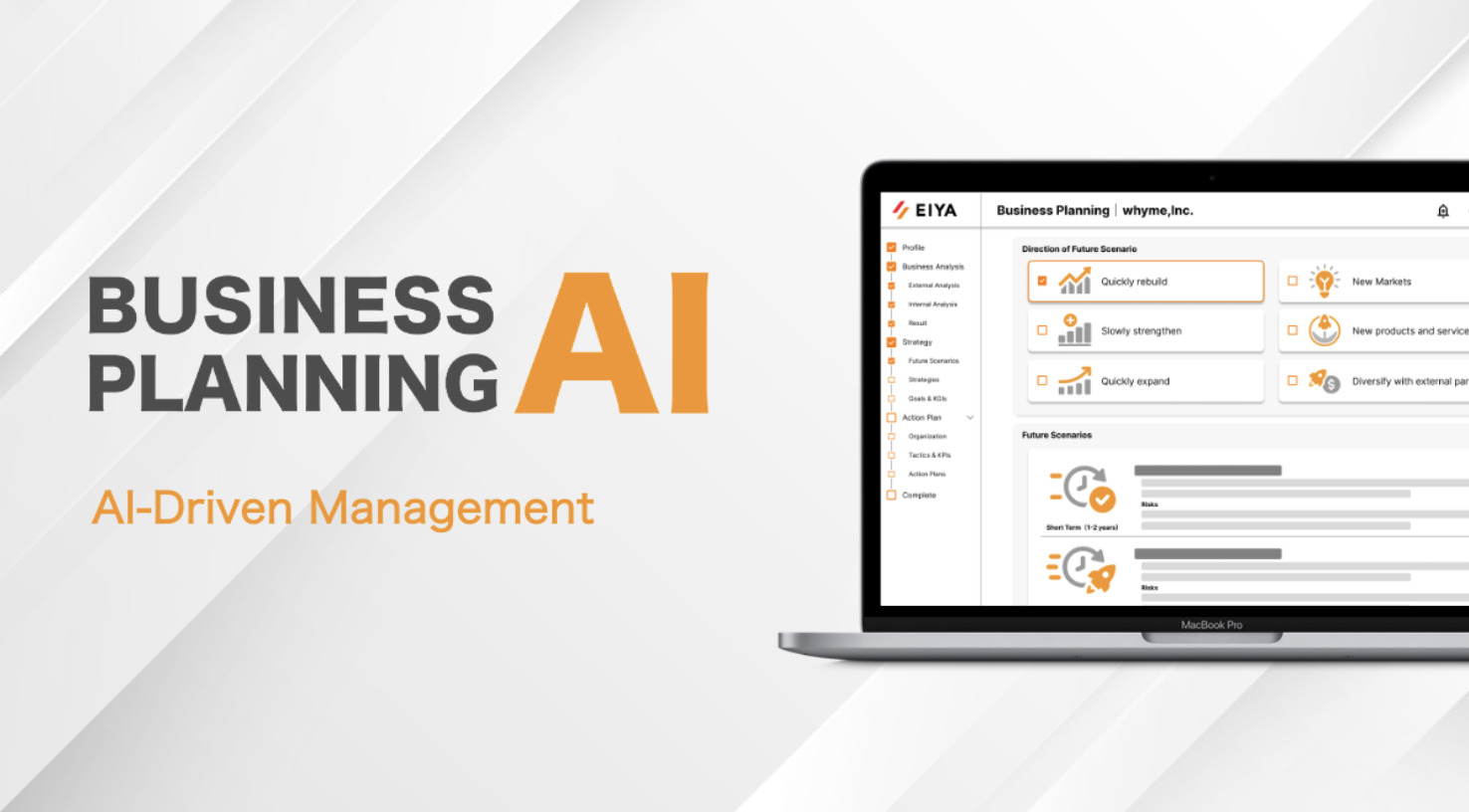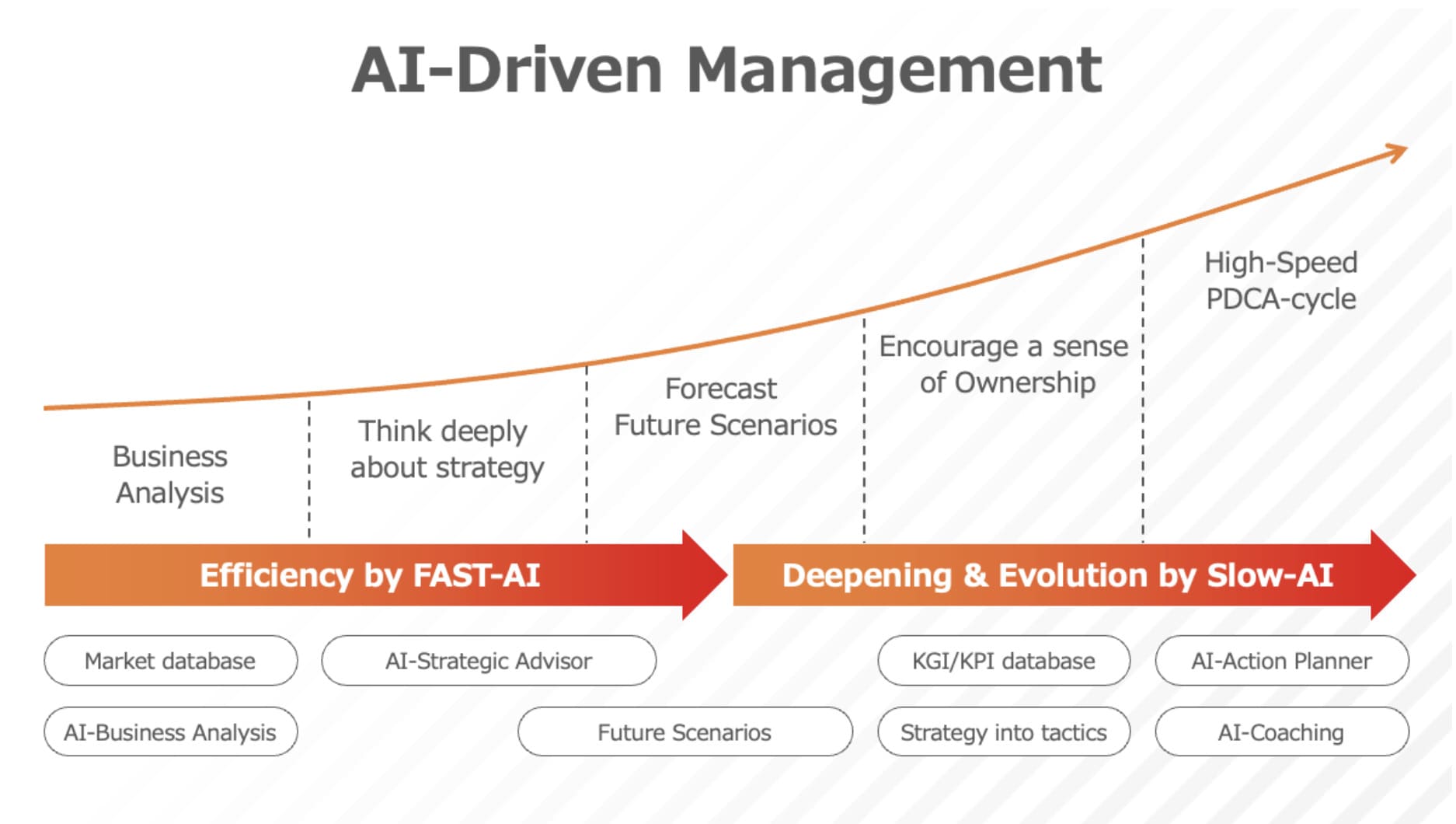For decades, Japan has struggled with economic stagnation, often referred to as the “Lost 30 Years. “Despite its reputation for technological innovation, many businesses have remained constrained by outdated planning methods and a rigid corporate culture. Takayuki Suzuki, a seasoned management consultant and the founder of whyme Inc., believes that artificial intelligence can help break this cycle. Through his company’s AI-driven business planning service, Business Planning AI, Suzuki is working to bridge the gap between strategic planning and execution, offering Japanese enterprises a more agile and effective approach to corporate transformation.
A Vision Shaped by Fukushima
Suzuki’s journey into AI-powered business planning was shaped by his firsthand experience with corporate reconstruction. In the aftermath of the Fukushima nuclear disaster, he worked closely with over 200 affected businesses, helping them rebuild. What he found was a deep disconnect between the aspirations of business owners and the practical steps required to achieve them.
“Many had the will to rebuild but lacked a clear, actionable strategy,” Suzuki recalls. “We did more than just offer advice; we participated in sales activities, product development, and even helped organize community festivals to restore morale.”
This is not just a problem limited to Fukushima—it’s an issue occurring throughout Japan.These efforts exposed a broader issue within Japanese corporate culture: business plans were often vague, failing to connect high-level strategies with on-the-ground execution. Recognizing this challenge, Suzuki set out to develop a solution that could scale strategic planning without sacrificing depth or clarity.
The Pitfalls of Traditional Business Planning
Research suggests that Japan’s economic stagnation is partly due to a lack of adaptive business strategies. A 2021 study by the Persol Research Institute found that 52.6% of Japanese professionals do not engage in any form of self-education, limiting exposure to new strategic frameworks. This knowledge gap contributes to rigid, ineffective planning methods that fail to respond to changing market conditions.
Suzuki observed that many struggling companies focused on reviewing numerical targets like key performance indicators (KPIs) and financial figures, rather than developing actionable strategies. This approach often resulted in plans that remained on paper, detached from daily operations. To address this issue, whyme Inc. developed Business Planning AI, a system designed to automate and refine the planning process using data-driven insights.

AI as a Strategic Partner
Business Planning AI differentiates itself by integrating both rapid market analysis (FAST-AI) and interactive coaching mechanisms (SLOW-AI). The FAST-AI component leverages extensive diagnostic checklists and real-time data to assess a company’s strengths and weaknesses, generating multiple strategic scenarios. Meanwhile, SLOW-AI encourages decision-makers to engage deeply with these insights, ensuring that strategy formulation remains an active, human-driven process.
One of the biggest risks of AI-driven strategy development is the potential for passive decision-making, where leaders rely too heavily on automated suggestions. “To prevent this, we designed the system to act as a thought partner rather than a decision-maker,” Suzuki explains. “Our AI encourages users to think critically about their choices, rather than accepting recommendations at face value.”
The combination of FAST-AI and SLOW-AI, already patented,, aims to create a structured yet flexible framework for corporate decision-making—one that empowers companies to navigate complex market conditions with greater agility.

Challenges and Pivots Along the Way
Suzuki’s path to launching Business Planning AI was not straightforward. Initially, he sought to transform the consulting industry through a coaching-based talent development program for project managers. However, the initiative struggled to gain traction. Consulting firms, he found, prioritized recruitment over in-depth training due to high employee turnover rates.
Facing financial strain, Suzuki pivoted to AI-driven business planning but encountered another challenge: a lack of technical expertise. “I had no prior experience in AI development or web services,” he admits. “Since we didn’t have the budget to hire talent through recruitment agencies, we turned to social media to find engineers and gradually built up our team.”
Through persistent outreach, Suzuki built a dedicated team, laying the foundation for what would become Business Planning AI. This adaptability, he argues, is precisely what he hopes to instill in Japanese enterprises through his technology.
The Future of Business Planning in Japan
The implications of AI-driven strategic planning extend beyond efficiency improvements. Suzuki envisions a future where businesses move away from static, top-down planning models and embrace a more dynamic, co-creative approach to management.
“Too much time is spent planning, and not enough on execution and refinement,” he notes. “By automating routine aspects of strategy formulation, we allow business leaders to focus on creativity and decision-making.”
If widely adopted, AI-powered planning tools like Business Planning AI could help Japanese enterprises become more adaptable, countering decades of economic stagnation. The broader goal is to foster a culture where executives and employees alike take ownership of their company’s direction, aligning strategic vision with actionable steps.

Balancing Technology and Human Insight
While AI offers unprecedented efficiency in business planning, Suzuki emphasizes that technology alone is not the solution. Successful corporate transformation, he argues, requires a blend of AI-driven insights and human expertise.
“AI is a tool, not a replacement for strategic thinking,” he says. “The best outcomes emerge when leaders use AI to enhance, rather than replace, their decision-making process.”
As Japan looks toward economic revitalization, initiatives like Business Planning AI highlight the potential of AI to not only streamline business operations but also reshape corporate culture. Suzuki’s approach challenges long-standing inefficiencies and offers a glimpse into a future where business planning is faster, smarter, and more aligned with real-world execution.
Through a combination of technological innovation and human-centric strategy, Suzuki and whyme Inc. are positioning themselves at the forefront of Japan’s business transformation. Whether AI-driven planning will become the norm remains to be seen, but one thing is clear: breaking the cycle of stagnation requires both new tools and a new mindset—a challenge Suzuki is determined to take on.
The photos in the article are provided by the company(s) mentioned in the article and used with permission.



































